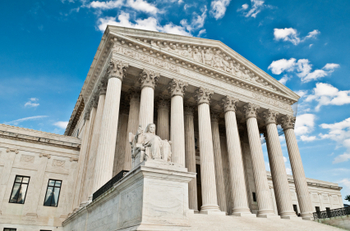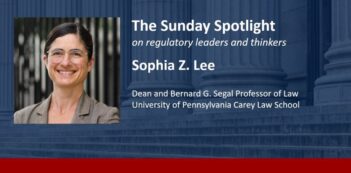
A former Solicitor General, who will argue for the act’s unconstitutionality, spoke at Penn Law.
Two days after the Supreme Court agreed to hear his argument for the unconstitutionality of the Patient Protection and Affordable Care Act, former Solicitor General Paul Clement came to Penn Law, at an event organized by students in the local chapter of the Federalist Society, to discuss the case and other important issues the Court will hear this term.
Clement, now a partner at a small Washington law firm, said that it was remarkable that the Supreme Court will be devoting five-and-a-half hours to oral argument over the Affordable Care Act, one-and-a-half hours of which will be devoted to the severability of the act’s individual mandate. He said the Court’s decision to hear lengthy argument on severability, an issue that does not arise unless the individual mandate is held unconstitutional, might indicate the Court’s willingness to strike down that central feature of the act.
Presaging his argument in the Supreme Court about the act, Clement explained why he believes the Court should hold unconstitutional the individual mandate, which would require all individuals to purchase some form of health insurance. While Congress has the power to regulate commerce, he said it does not have the plenary authority required to compel someone to engage in commerce.
Clement also discussed other important administrative law-related cases the Supreme Court will hear this term. For example, it will review a decision on the authority of the Federal Communications Commission (FCC) to regulate fleeting expletives on television.
The Court will also look at whether the executive branch may ignore a statutory requirement compelling it to change certain information it provides on passports. Clement said the decision in this case could have significant implications for executive branch power in other areas, such the war on terror.



